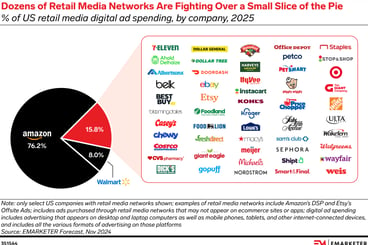CONSUMER OP-ED
Consumer Industry Trends: The Shifting Landscape of 2025


The consumer industry is evolving at an unprecedented pace, shaped by technological advancements, shifting demographics, and changing economic conditions. As someone who has analyzed private market investments and deployed capital in transformative industries, I see three major trends shaping the future of consumer markets: the rise of AI-powered retail, the reconfiguration of supply chains, and the next evolution of brand loyalty.
1. AI-Powered Retail: Beyond Personalization
AI is no longer just a tool for optimizing ad spend—it’s redefining the way consumers discover, purchase, and engage with products. The most forward-thinking retailers are leveraging AI to create hyper-personalized shopping experiences, predictive inventory management, and even generative AI-driven product development. Companies that fail to integrate AI-driven efficiencies will find themselves at a competitive disadvantage.
We’re already seeing this play out in luxury fashion, where brands like LVMH are using AI to optimize pricing strategies and customer engagement. At scale, this will fundamentally change how consumer-facing businesses operate, shifting value from traditional retail tactics to intelligent, automated decision-making.
2. The New Supply Chain Playbook
The pandemic-era disruptions exposed the fragility of global supply chains, and since then, we’ve seen a shift toward nearshoring and localized production. Consumer brands are reassessing their dependency on overseas manufacturing, with Mexico and India emerging as key production hubs to hedge against geopolitical risk.
For investors, this presents an opportunity in infrastructure and logistics. The winners in this space will be the players investing in automation, digitized freight tracking, and vertically integrated manufacturing. The days of “just-in-time” supply chains optimized for cost efficiency are giving way to a “just-in-case” model that prioritizes resilience.
3. The Evolution of Brand Loyalty
Brand loyalty isn’t what it used to be. Consumers—especially Gen Z and younger millennials—no longer identify with legacy brands in the same way previous generations did. Instead, they gravitate toward brands that align with their values, offer exclusivity, or tap into online communities.
We’re witnessing the rise of micro-brands that use platforms like TikTok and Discord to create cult-like followings. Traditional loyalty programs are losing effectiveness, and companies are scrambling to replace them with NFT-based rewards, exclusive memberships, and AI-driven subscription models. In this environment, community-driven commerce will define the next wave of consumer engagement.
Final Thoughts
For investors and operators in the consumer space, these trends aren’t just theoretical—they’re shifting the economics of the industry in real time. The most successful companies will be those that adapt to AI-driven retail, fortify their supply chains, and rethink what brand loyalty means in a digital-first world.
The consumer industry is cyclical, but transformation happens in waves. Right now, we’re at the beginning of one.


